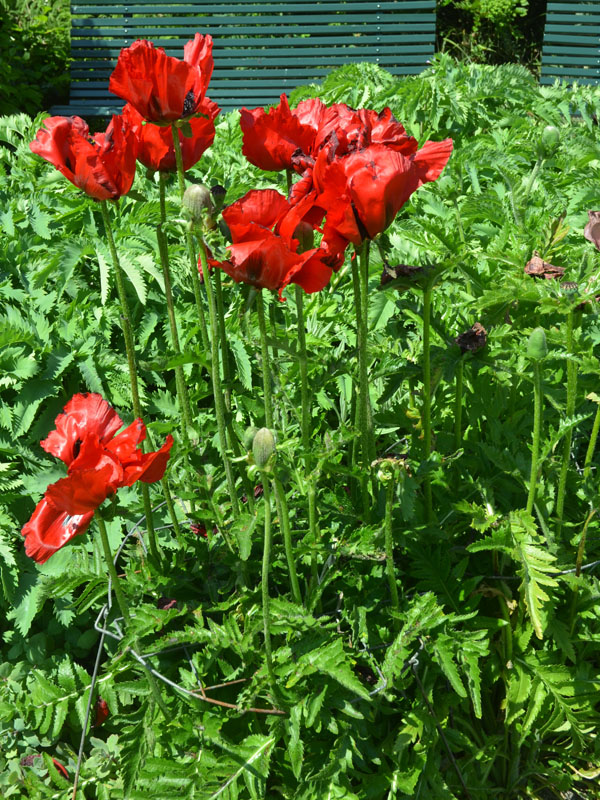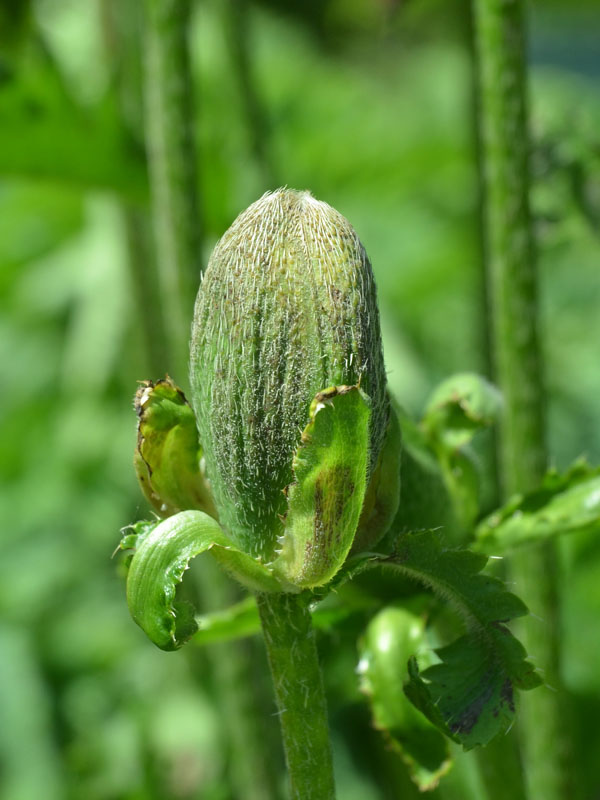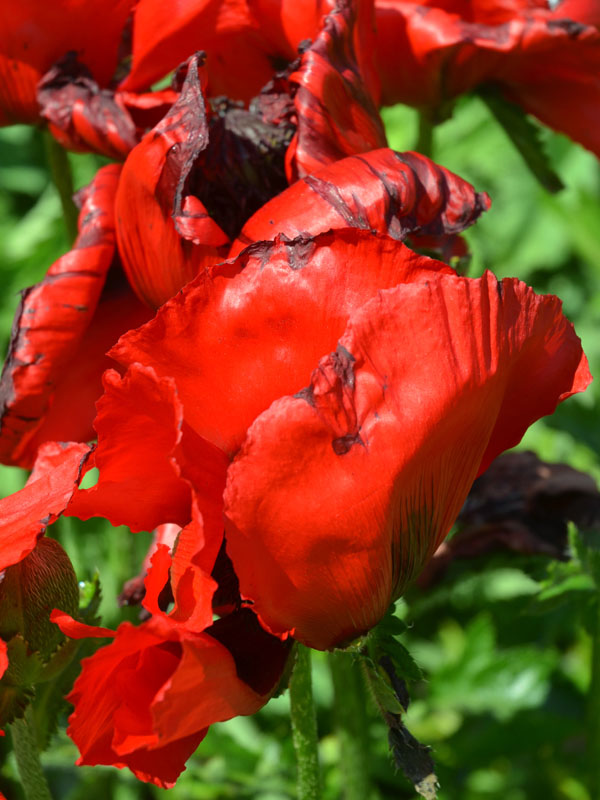
Perennials > Papaver > Papaver orientale > Papaver orientale 'Beauty of Livermere'
Papaver orientale
'Beauty of Livermere'
Beauty of Livermere Oriental Poppy
| Family |
| Papaveraceae |
| Genus |
| Papaver |
| Species |
| orientale |
| Cultivar |
| 'Beauty of Livermere' |
| Category |
| Perennials |
| USDA Hardiness Zone |
| 3 - 7 |
| Canadian Hardiness Zone |
| 1 - 7a |
| RHS Hardiness Zone |
| H7 - H5 |
| Temperature (°C) |
| -40 - (-15) |
| Temperature (°F) |
| -40 - 10 |
| Height |
| 0.6 - 0.9m |
| Spread |
| 0.3 - 0.6m |
Photographs
Description and Growing Information
Flowering Period
| General Description |
| A clump-forming poppy that has scarlet red flowers with purple centres. |
| Cultivation |
| Best grown in organically rich, fertile, medium moisture, well-drained soils in full sun. Prefers cold weather, and will generally not grow south of USDA Zone 7. Flowers yellow and die after flowering, leaving a hole in the garden. |
| Growth |
| Fast |
| Pests |
| No serious insect or disease problems. Wet, poorly-drained soils can cause significant problems such as root rot, particularly in winter. Botrytis and powdery mildew may also occur. |
| Habitat |
| Horticultural origin. |
| Leaf Description |
| Serrate, thistle-like, greyish-green leaves (to 25 cm long) are pinnately dissected into lance-shaped segments and have a somewhat weedy appearance. |
| Flower Description |
| Each flower has 4-6 scarlet red petals with a dark basal blotch at the base of each petal and a boss of dark purple centre stamens. |
| Notable Specimens |
| Lanhydrock, National Trust, Bodmin, Cornwall, England. |
| Propagation |
| May be grown from seed, but typically self-seeds in the garden. |


